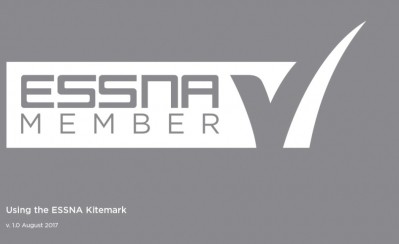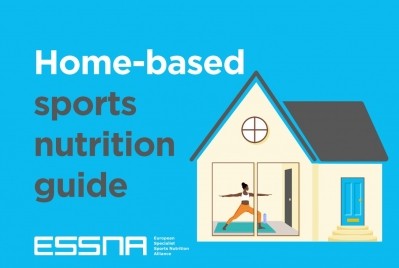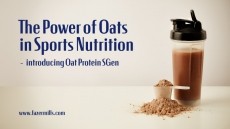ESSNA urges sports nutrition exemption from EU labelling laws

Commenting on last week’s vote, the industry group urges policymakers to take into account the sector’s specificities and sportspeople’s nutritional needs or risk, “disproportionately affecting the industry and posing a barrier to promoting nutrition education.”
“It is important that policymakers are aware that food intended for sportspeople cannot be treated as generalist food,” explains ESSNA Chair Dr Adam Carey.
“It is purposefully formulated with higher levels of certain nutrients (usually sodium or carbohydrates) to cater for the specific needs of people engaged in high-intensity exercise and other forms of activity.”
Dr Carey, ESSNA’s Chair since 2003, refers to paragraph 94 of the European Commission’s own non-legally binding ‘Farm to Fork Strategy’ report that states FOPNL legislation be developed “based on independent scientific evidence and demonstrated consumer understanding, taking into account specialist foods as well as the additional burden for food operators and unions.”
One size fits all
He goes on to warn the setting of nutrient profiles on sports food and a “a “one size fits all” approach of FOPNL could mean special compositional characteristics of food intended for sportspeople are not adequately communicated.
The risk here is that sports nutrition products will not be allowed to bear health claims, depriving consumers of valuable information regarding the benefits of these products.
So, for example sports nutrition products that are often high in protein have been linked to health benefits of which, such as maintenance of normal bones.
Under the terms set out for nutrient profiling, consumers would not be made aware of this health benefit as these products would be prevented from bearing this health claim.
Another example refers to a Scientific Opinion made by the European Food Safety Authority (EFSA), in which carbohydrate-electrolyte solutions were able to reduce perceived exertion/effort during exercise, enhancement of water absorption during exercise, and maintenance of endurance performance.
“As a result of the industry’s successful consumer information campaign, today sports nutrition consumers know what they are looking for and they are able to make informed choices,” Dr Carey adds.
“The nutrient profiles and FOPNL regulations could potentially enormously set back the work that the industry does to improve consumers’ understanding of and access to education on specialist food products.”
Some element of specificity
ESSNA’s concerns appear to be supported by a 2016 report produced by the Commission intended for the European Parliament and the Council.
Here, the Commission states that sports food may include “some element of specificity,” and that “this may have to be taken into account by the Commission in the application and implementation of the horizontal rules, so that such specificities can be adequately addressed.”
Last week, the European Parliament voted in favour of setting mandatory nutrient profiles and FOPNL, to restrict the promotion of foods that are high in fat, sugar and salt (HFSS).
The vote was in accordance to proposals put forward by the European Commission as part of its ‘Farm to Fork Strategy’ designed to promote a fairer, healthier and environmentally friendlier food system.
Following the Parliament’s vote, the EU will begin the process of introducing the nutrient profiles and FOPNL regulations.
ESSNA adds it will, “continue to work constructively with policy makers to ensure the specificities of sports and active nutrition will be taken into account in the new legislation.”















